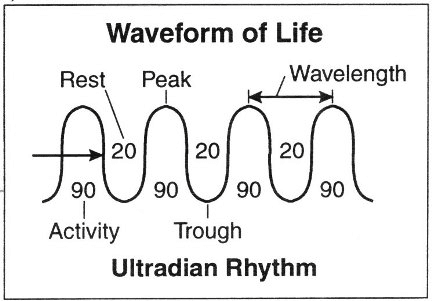Why You Need To Unplug Every 90 Minutes
Curated from: fastcompany.com
Ideas, facts & insights covering these topics:
4 ideas
·2.24K reads
28
Explore the World's Best Ideas
Join today and uncover 100+ curated journeys from 50+ topics. Unlock access to our mobile app with extensive features.
Work Cycles
Humans have imagined themselves as machines, doing work linearly, and continuously.
We aren't machines, but organisms that work best cyclically, with intervals and rest periods.
122
604 reads
90 Minute Cycles
The 90-minute cycle works well for most of the demanding and creative work, as follows:
- Morning practice is essential.
- Three sessions a day on an average
- Each session is for 90 minutes
- A break is essential between the sessions.
158
597 reads
The Ultradian Rhythm
Your brain can only focus for 90 to 120 minutes before it needs a break.
This is the ultradian rhythm, a cycle that’s present in both our sleeping (the 90-minute cycles during which we progress through the five stages of sleep) and waking lives (as we move from higher to lower alertness).
205
568 reads
Unplug after 90 Minutes
Unplugging or taking a break after 90 minutes is not opposing your work in any way, but is a part of your work.
Taking a break only enhances your work quality, so that you are at your best after returning.
124
475 reads
IDEAS CURATED BY
Cash 's ideas are part of this journey:
Learn more about timemanagement with this collection
How to manage anxiety and self-doubt
Strategies for setting realistic goals
The importance of self-compassion and self-care
Related collections
Similar ideas
Read & Learn
20x Faster
without
deepstash
with
deepstash
with
deepstash
Personalized microlearning
—
100+ Learning Journeys
—
Access to 200,000+ ideas
—
Access to the mobile app
—
Unlimited idea saving
—
—
Unlimited history
—
—
Unlimited listening to ideas
—
—
Downloading & offline access
—
—
Supercharge your mind with one idea per day
Enter your email and spend 1 minute every day to learn something new.
I agree to receive email updates

